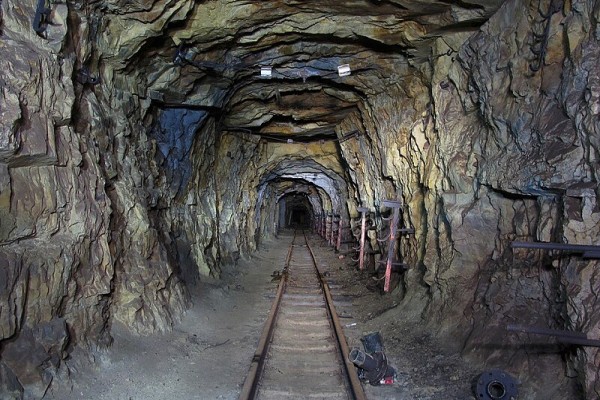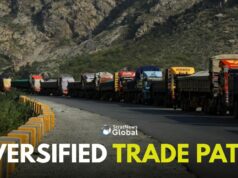Russian President Vladimir Putin said on Wednesday that Moscow should consider limiting exports of uranium, titanium and nickel in retaliation for sanctions.
Putin’s remarks to government ministers prompted a rise in nickel prices and drove shares in uranium mining firms higher.
In televised comments, he said such restrictions could also be introduced for other commodities, and noted that Russia was a major producer of natural gas, diamonds and gold.
But he said that measures did not need to be taken “tomorrow”, and must not cause damage to Russia itself.
“Russia is the leader in reserves of a number of strategic raw materials: for natural gas, this is almost 22% of world reserves, for gold – almost 23%, for diamonds – almost 55%,” Putin said.
Putin threatened the West with limiting uranium, titanium and nickel exports.
The U.S. aircraft industry and nuclear power industry, in particular, depend on Russian titanium and uranium. More than half of titanium alloys for the global aircraft industry industry are produced in… pic.twitter.com/EtEUYtK1xY
— Anton Gerashchenko (@Gerashchenko_en) September 11, 2024
“Please take a look at some of the types of goods that we supply to the world market … Maybe we should think about certain restrictions – uranium, titanium, nickel,” he told Prime Minister Mikhail Mishustin.
“We just mustn’t do anything to harm ourselves,” he added.
Western countries have sharply cut purchases of Russian oil and gas since the start of the war in Ukraine but Russia remains a major supplier of metals to world markets, so a cut or halt to its exports could cause disruption, analysts said.
Russia is home to Nornickel, the world’s biggest refined nickel producer. It is a major nickel supplier to China and Europe.
More than a fifth of the nickel in LME-registered warehouses is of Russian origin, data showed on Tuesday. The metal is used in batteries and in alloys with a wide range of applications including armour plating and turbine blades.
Shares in uranium miners jumped following the news, with Canadian miners NexGen Energy, Cameco and Denison Mines up between 5.2% and 5.4%
Russia is the world’s fourth largest uranium producer and has about 44% of global uranium enrichment capacity.
In 2023 the U.S. and China topped the list of Russian uranium importers, followed by South Korea, France, Kazakhstan and Germany.
In May, U.S. President Joe Biden signed into law a ban on enriched uranium imports from Russia, a trade worth around $1 billion annually. However, it contained waivers in case of supply concerns that would allow the Department of Energy to maintain normal levels of Russian uranium imports through 2027.
Russia accounted for 27% of the enriched uranium supplied to U.S. commercial nuclear reactors last year.
“It will be really hard to replace, especially in the short term, the next 2-3 years,” said Citi analyst Arkady Gevorkyan.
“Western enrichers are only making plans to build additional enrichment capacity, which would require at least three years to be completed. We anticipate that utilities in the U.S. might be able to partially replace it by importing low enriched uranium from China,” he said.
Russia is also the world’s third largest producer of titanium sponge, which is turned into metal for industrial applications in the aerospace, marine and auto industries, but has low titanium mineral reserves of its own.
Russian customs data shows that United States still buys Russian titanium, but the biggest purchasers are France, China and Germany.
(REUTERS)
In a career spanning three decades and counting, Ramananda (Ram to his friends) has been the foreign editor of The Telegraph, Outlook Magazine and the New Indian Express. He helped set up rediff.com’s editorial operations in San Jose and New York, helmed sify.com, and was the founder editor of India.com.
His work has featured in national and international publications like the Al Jazeera Centre for Studies, Global Times and Ashahi Shimbun. But his one constant over all these years, he says, has been the attempt to understand rising India’s place in the world.
He can rustle up a mean salad, his oil-less pepper chicken is to die for, and all it takes is some beer and rhythm and blues to rock his soul.
Talk to him about foreign and strategic affairs, media, South Asia, China, and of course India.





